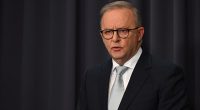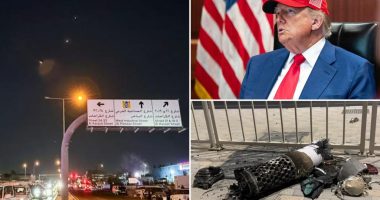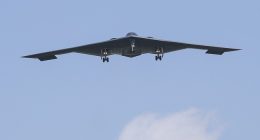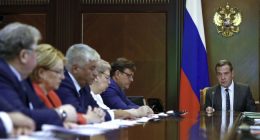Prime Minister Anthony Albanese says the federal government supports action to stop Iranian nuclear capability after the US struck three facilities.
Albanese called for “dialogue and diplomacy” following the US military’s attack on three nuclear sites in Iran while speaking to media today.
“The world has long agreed that Iran cannot be allowed to get a nuclear weapon and we support action to prevent that – that is what this is,” Albanese said.

“The US action was directed at specific sites central to Iran’s nuclear program.
“We don’t want escalation and a full-scale war.”
Albanese echoed earlier sentiment about urging Iran to come to the negotiating table and to abandon its nuclear program.
“Iran didn’t come to the table just as it has repeatedly failed to comply with its international obligations,” he said.
“We urge Iran not to take any further action that could destabilise the region.”
When asked if he has spoken to US President Donald Trump since news of the Iran strikes broke, Albanese said no.
Foreign Minister Penny Wong said the government is continuing to work with Australians stranded in Iran and Israel.
She said Australia has deployed support at the Azerbaijani border to help those able to make it there.

Speaking on Today this morning, Wong said the sites targeted by the United States were specific to Iran’s nuclear program.
“We support action to prevent Iran getting a nuclear weapon,” Wong said.
“We know what the UN nuclear watchdog has said … and that is that Iran is enriching to almost military levels … enough for multiple nuclear weapons.”

An Australian government spokesperson yesterday stopped short of offering an endorsement of the strikes.
In a statement, the spokesperson called for de-escalation in the Middle East, while also acknowledging the risk posed by Iran’s nuclear program.
Wong said despite supporting the US strikes, ultimately what she and other world leaders were still calling for was “de-escalation and diplomacy”, adding Australia did not want to see “a full-scale war and continued escalation in the Middle East”.
Wong said the US had not made any request for involvement in the war from Australia.
“No such request has been made and I wouldn’t speculate,” Wong said.
“But I again would say we are concerned, as are so many people around the world, about continued escalation. No-one wants to see full-scale war in the Middle East.”

Wong acknowledged the plight of thousands of Aussies who are still stuck in both Israel and Iran and said Australia was still working on trying to help them evacuate.
“Obviously, this is a highly risky and precarious situation, and my heart goes out to Australians in Iran and in Israel, and to their friends and families in Australia who are so deeply worried about them,” Wong said.
The security situation in Israel meant land crossing were not possible, but the government was working on trying to arrange contingency flights, Wong said.
“There are reports … of airspace opening for Israel for a limited period. We are working on contingency arrangements to see if we can get a flight in to collect people, and we have notified people on the ground about that.”
The situation in Iran was even worse and more serious, Wong said.
“We obviously have had to make the difficult decision to close our embassy,” she said.







